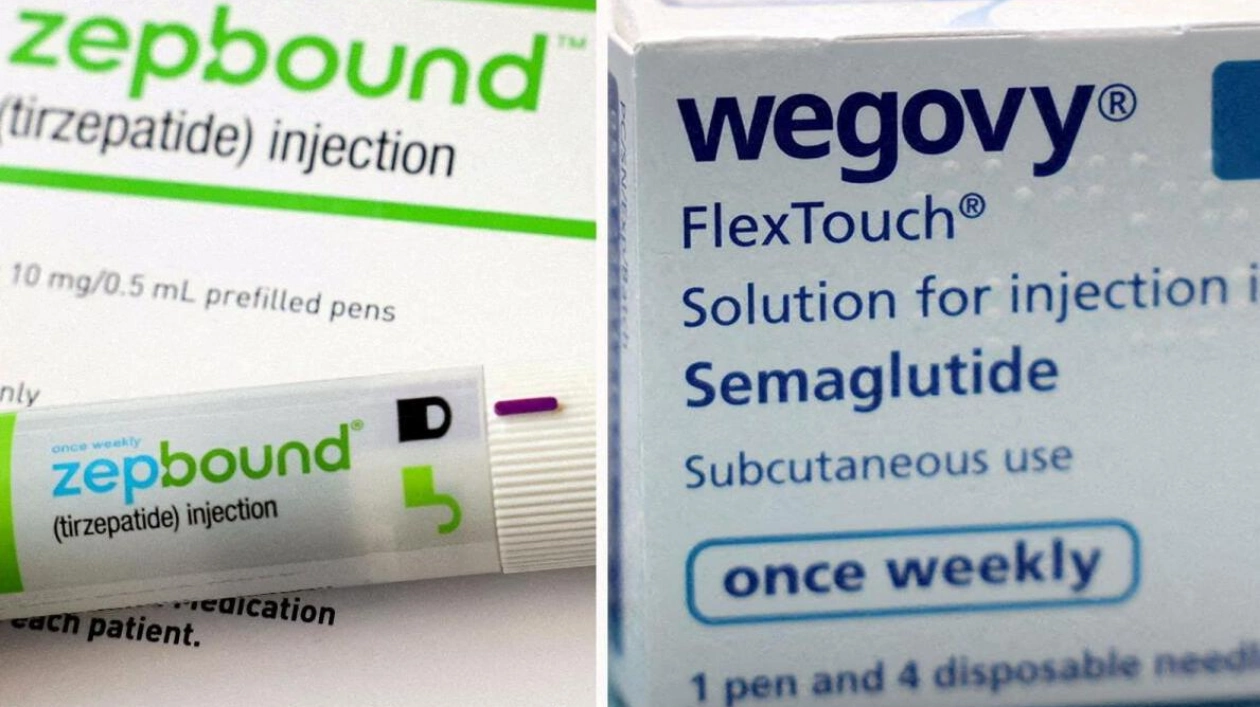A combined image showcases an injection pen of Zepbound, Eli Lilly's weight loss drug, alongside boxes of Wegovy, manufactured by Novo Nordisk. This image, sourced from a Reuters file photo, is used solely for illustrative purposes.
Britain's National Institute for Health and Care Excellence (NICE) announced on Thursday that it will endorse the availability of Eli Lilly's obesity drug, Mounjaro, to approximately 220,000 individuals across the nation through the state health system over the next three years. Mounjaro was introduced in the UK in February but had been accessible primarily to those who could afford out-of-pocket payments, mainly via online pharmacies.
NICE is now recommending Mounjaro, in conjunction with dietary modifications and exercise, for individuals with at least one weight-related ailment, such as heart disease or type 2 diabetes, and a body mass index (BMI) exceeding 35. These eligibility criteria align with those issued by NICE in March 2023 for Wegovy, an obesity medication produced by Novo Nordisk.
These guidelines imply that around 3.4 million people in England could qualify for Mounjaro through the National Health Service (NHS). Initially, during the first three-year phase, those with the most pressing clinical needs will be prioritized. Within this initial three-year period, approximately 220,000 people are anticipated to receive the medication, with NICE planning to reassess the situation within that timeframe.
NICE anticipates publishing its definitive guidance on December 23, provided no appeals are filed beforehand. The first NHS patients will begin receiving Mounjaro 90 days after the guidance is published if they are already under treatment at a specialist NHS weight management service, or from 180 days after if they are not receiving such specialized care.
This criteria means that around 3.4 million people will be eligible for treatment, necessitating a carefully managed rollout to ensure healthcare professionals can continue to address the full spectrum of health needs for all their patients, according to NICE.
Mounjaro belongs to a class of medications known as GLP-1 analogues, initially developed to aid in blood sugar control for type 2 diabetes patients but later found to suppress appetite and promote a sense of fullness. Clinical trials revealed that Mounjaro led to an average weight loss of nearly 23%.
According to a 2019 report by the Organisation for Economic Cooperation and Development (OECD), nearly one in three adults in Britain are obese, marking the highest rate in Europe. This figure surpasses the European Union average of 16.5%, as per EU statistics.
In a statement, Lilly expressed its appreciation for NICE's recommendation and acknowledged the necessity for a phased rollout.
Source link: https://www.khaleejtimes.com






